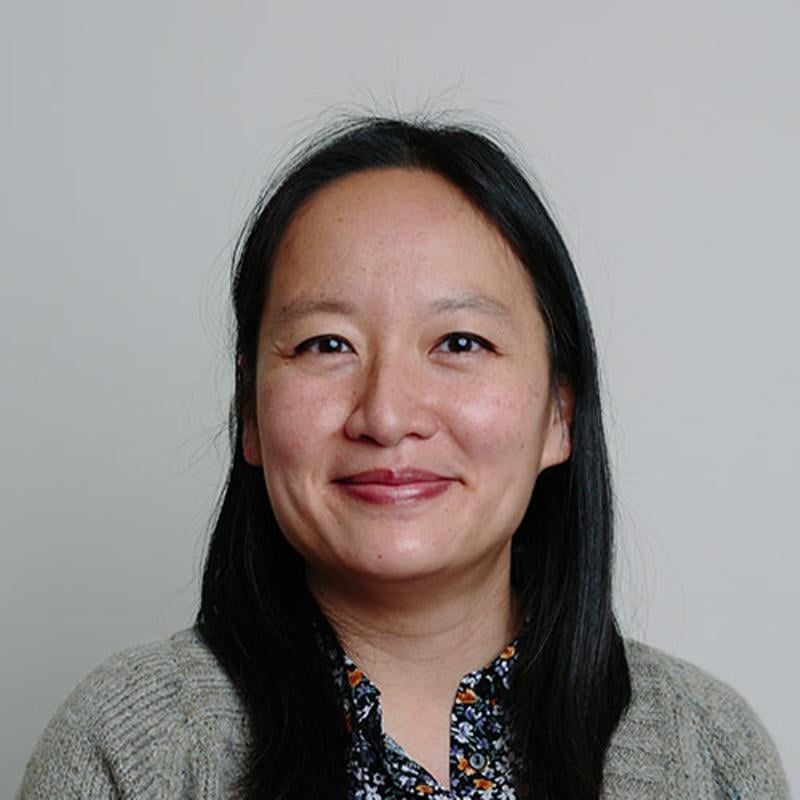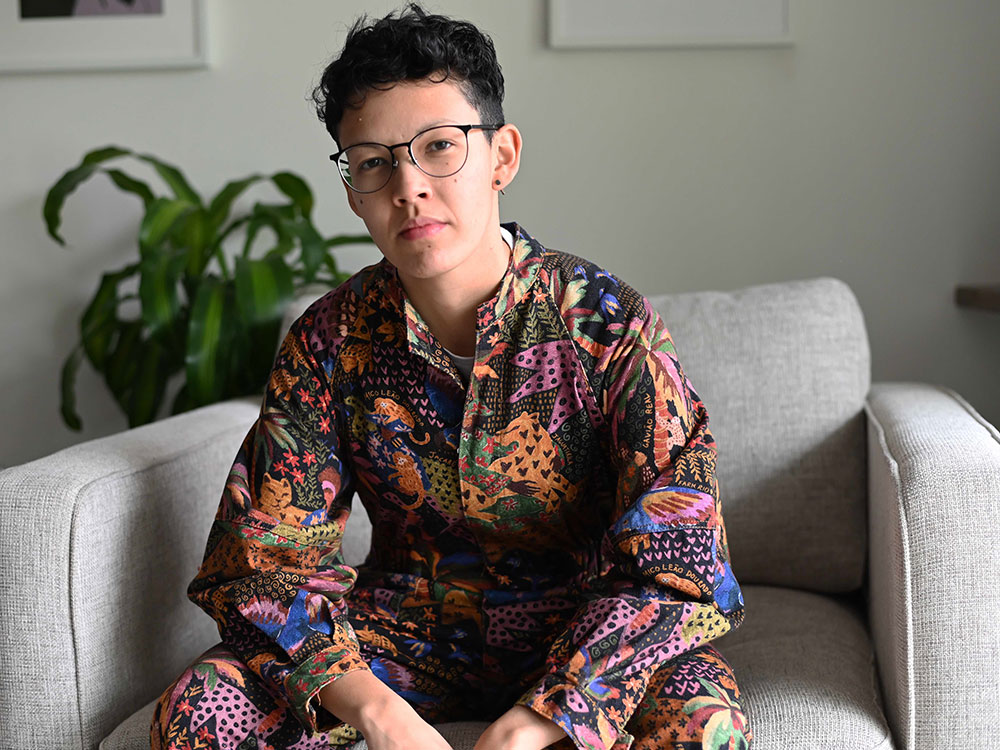- Atomweight
- Tidewater Press (2023)
Vancouver writer, journalist and UBC thought-leader Emi Sasagawa prefaces her debut novel with a quote from the writer Lalah Delia:
Grapes must be crushed to make wine.
Diamonds form under pressure.
Olives are pressed to release oil.
Seeds grow in darkness.
Whenever you feel crushed, under pressure, pressed or
in darkness you’re in a powerful place
of transformation and transmutation.
This opening poem sets the scene for a powerful debut novel about transformation, hybrid identity and the ways in which we underestimate ourselves.
Atomweight is a propulsive exploration of growth and becoming, told through the eyes of Aki. We first meet her in the summer after high school, where she is known to her family as a dutiful, undemanding daughter and, as a point of their pride, a top student. She soon leaves home in Vancouver to start a new life as a university student in London.
The year is 2008, Katy Perry is on the radio and young people pull on form-fitting dresses to flood the dance floor on Saturday nights. Away from the anxious gaze of her conservative transracial parents, Aki discovers new dimensions of her sexuality while reckoning with her intersecting privileges and oppressions that upend her world as she knows it. To cope, she starts cultivating a peculiar, secretive pursuit: all-out brawls with strangers.
It’s a moving, immersive novel that will resonate with third-culture kids, queer youth and anyone who has experienced the tension between how the wider world perceives them and how they understand themselves.
“As someone who grew up mixed [race], moving from country to country every few years, my identity had always felt relative to the people surrounding me,” Sasagawa explains.
“It wasn’t until I moved to the U.K. for undergrad that I began to rethink what it meant to take up space as me. I wanted to explore that journey we all go through as teenagers and young adults, but especially as individuals occupying queer bodies… I like to think of Aki as a gift to my younger self, an experiment in freedom and recklessness.”
Atomweight began as a short story and became a novel through the course of Sasagawa’s time in the SFU Writer’s Studio. She is now an MFA candidate in the school of creative writing at UBC, where she also works on campus as the communications director of its faculty of arts.
Sasagawa is an important presence in the ongoing work the university is undertaking to address racism and racial equity. This work plays out in the book, where we follow queer, racialized youth as they move through messy romances, close friendships and complicated family dynamics that bring them face-to-face with who they are — and how that is both informed by and the inverse of where they’re from.
The Tyee had a chance to catch up with Sasagawa on the occasion of Atomweight’s release this spring. What a joy to reunite with an old friend: way back when Sasagawa was new to Vancouver, The Tyee was proud to welcome her as a journalism intern. This interview has been edited for length and clarity.
The Tyee: Atomweight is set in 2008, as the global financial crisis is starting to take hold. You've done a wonderful job of capturing what it felt like to move about the world that year, from the pop songs to what people were eating and wearing. What was it like for you to write about the recent past?
Emi Sasagawa: It helps that I lived through 2008 as an undergrad student in London, but left shortly after I graduated. It allowed for me to retain a memory of this city frozen in time. In my own practice, I used music liberally to get me into the right headspace for writing. I created playlists of songs I would have listened to back then — in clubs, at the gym and in my own college room. Sometimes, I would put a song on repeat for hours just to get a chapter the way I wanted it.
At the same time, revisiting my own recent past was a tangential inevitability. Recognizing that sometimes I needed a mental health break from writing the book was crucial. Some days I could do it for five hours nonstop. Other days, it felt impossible to put a word down.
To have to put yourself in the shoes of your characters, when they are battling internal and external turmoil can be exhausting. On top of that, when you’re queer and the story you’re writing is about coming out, it can feel triggering.
Your role as the communications director for UBC's faculty of arts is admirable and wide-ranging. It involves work on the President's Task Force on Anti-Racism and Inclusive Excellence at UBC. You have also advised and co-moderated at the National Forum on Anti-Asian Racism, and are part of the advisory group to the Centre for Asian Canadian Research and Engagement at UBC. Can you tell me about how your work has informed your writing, and vice versa?
In some ways, my work at UBC has provided me with a framework to consider my experiences in context with the world around me. Identifying and naming the ways in which privilege and marginalization shape how I show up for myself and others, I hope, creates trust, accountability and empathy.
In a similar vein, I try my best to write from a place of compassion and humility, for myself, the narrator and the characters in the work. We exist in a state of constant possibility, meaning we are never static. Acceptance of this in both a literal and literary sense expands the linear boundaries of who we are and who we can become. It’s like beginning to see a two-dimensional world in 3D.
What are some ways in which fiction help us imagine a more equitable, socially just world?
Fiction allows us to distill complex truths and package them in conveniently sized and easily digestible works fit for mass consumption. It can be a way to drive a point across without being overly didactic or judgmental. If done well, it can make places and people that have felt distant and alien, accessible and relatable. Most of all, it can be a safe place from which to explore and stretch real and imagined worlds.
Did you write this book with particular readers in mind?
I selfishly wrote Atomweight with myself in mind. Not a me at a particular point in time, but the full spectrum of my existence. In other words, every version of myself I ever was and will be. I wanted to write a story that would resonate with queer, mixed, racialized bodies. The book is meant as an invitation for readers to reflect on their intersectional identity — through privilege and power, and oppression and marginalization — and reimagine how they may take up space and hold space for others.
Any advice for younger queer writers, who may be in a similar stage of life as the young characters in your book?
The most lasting damage is that which we inflict on ourselves, often as a silent prayer only we know the words to. I spent most of my 20s stewing in guilt and shame for not owning who I was. Looking back now, I can see I did what I could when I had the fortitude to withstand the consequences.
I don’t regret the five or six years I waited before coming out, but I do regret the subsequent 10 years I spent punishing myself for not being brave or bold enough to leave the closet sooner. You are exactly where you need to be right now.
What are you reading these days? What are you looking forward to this summer?
Recent reads include Kitchen by Banana Yoshimoto, Tokyo Ueno Station by Yu Miri, Bad Cree by Jessica Johns, How Far the Light Reaches by Sabrina Imbler and There No Such Thing as an Easy Job by Kikuko Tsumura.
My to read pile for this summer includes Tell Me Pleasant Things about Immortality by Lindsay Wong, Unbroken by Angela Sterritt and Unearthing: A Story of Tangled Love and Family Secrets by Kyo Maclear.
Emi Sasagawa celebrates the launch of ‘Atomweight’ in conversation with the author, former broadcaster and professor Minelle Mahtani at Upstart & Crow bookstore in Vancouver June 8 at 7 p.m. ![]()
Read more: Books, Rights + Justice, Gender + Sexuality

















Tyee Commenting Guidelines
Comments that violate guidelines risk being deleted, and violations may result in a temporary or permanent user ban. Maintain the spirit of good conversation to stay in the discussion and be patient with moderators. Comments are reviewed regularly but not in real time.
Do:
Do not: